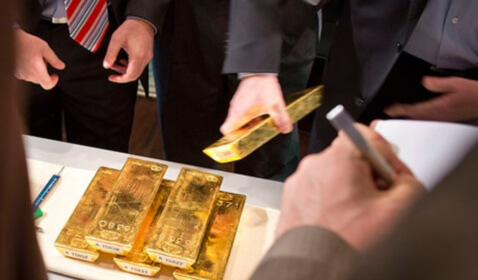Of all the precious metals, gold is the most popular as an investment. Investors generally buy gold as a hedge or harbor against economic, political, or social fiat currency crises such as investment market declines, burgeoning national debt, currency failure, inflation, war and social unrest. The Nixon Shock of 1971 ended the direct convertibility and converted the transition to a fiat currency system.
Bloomberg News has reported that gold rose, adding 0.9 percent to $1,274.70 an ounce and the price of silver for March delivery increased 0.9 percent for a sixth consecutive advance. The Yen gained as well and Chinese shares climbed.
The gold market is subject to speculation as are other markets, especially through the use of futures contracts and derivatives. The price of gold has shown a long term correlation with the price of crude oil. This may suggest a reason why gold is sold off during times of economic weakness.
Inflation is rising so the value of gold could still gain if interest rates rise. Gold is often seen as a good inflation hedge, but according to Forbes, investors who want to hedge against unexpected inflation should also include a diversified basket of commodities as agricultural goods and energy are better hedges for the unexpected inflation.
According to Blanchard Online, because of the inflationary impact of government bailouts, analysts believe that when gold reaches $1,500 it will be the floor, not the ceiling. The price of gold could fall if economic growth in emerging market countries slows or if emerging market countries relax their financial repression, reported the International Business Times.
Money manager, Laszlo Birinyi, is the founder of Birinyi Associates Inc. one of the first analysts to advise clients to buy when stocks were bottoming after the 2008 financial crisis, reported “I don’t like when the market just shrugs these things off.”
Image Credit: www.theguardian.com





































